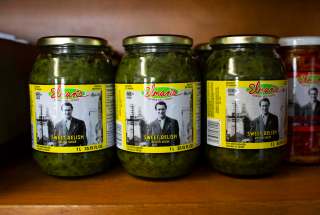A big dill It started with horseradish, sold from a wooden wagon pulled from one Winnipeg neighbourhood to another. Nearly 80 years later, Elman's products are sold from Thunder Bay to Vancouver
Read this article for free:
or
Already have an account? Log in here »
To continue reading, please subscribe:
Monthly Digital Subscription
$0 for the first 4 weeks*
- Enjoy unlimited reading on winnipegfreepress.com
- Read the E-Edition, our digital replica newspaper
- Access News Break, our award-winning app
- Play interactive puzzles
*No charge for 4 weeks then price increases to the regular rate of $19.00 plus GST every four weeks. Offer available to new and qualified returning subscribers only. Cancel any time.
Monthly Digital Subscription
$4.75/week*
- Enjoy unlimited reading on winnipegfreepress.com
- Read the E-Edition, our digital replica newspaper
- Access News Break, our award-winning app
- Play interactive puzzles
*Billed as $19 plus GST every four weeks. Cancel any time.
To continue reading, please subscribe:
Add Free Press access to your Brandon Sun subscription for only an additional
$1 for the first 4 weeks*
*Your next subscription payment will increase by $1.00 and you will be charged $16.99 plus GST for four weeks. After four weeks, your payment will increase to $23.99 plus GST every four weeks.
Read unlimited articles for free today:
or
Already have an account? Log in here »
Hey there, time traveller!
This article was published 06/09/2018 (2654 days ago), so information in it may no longer be current.
Payton Krause was in a bit of a pickle.
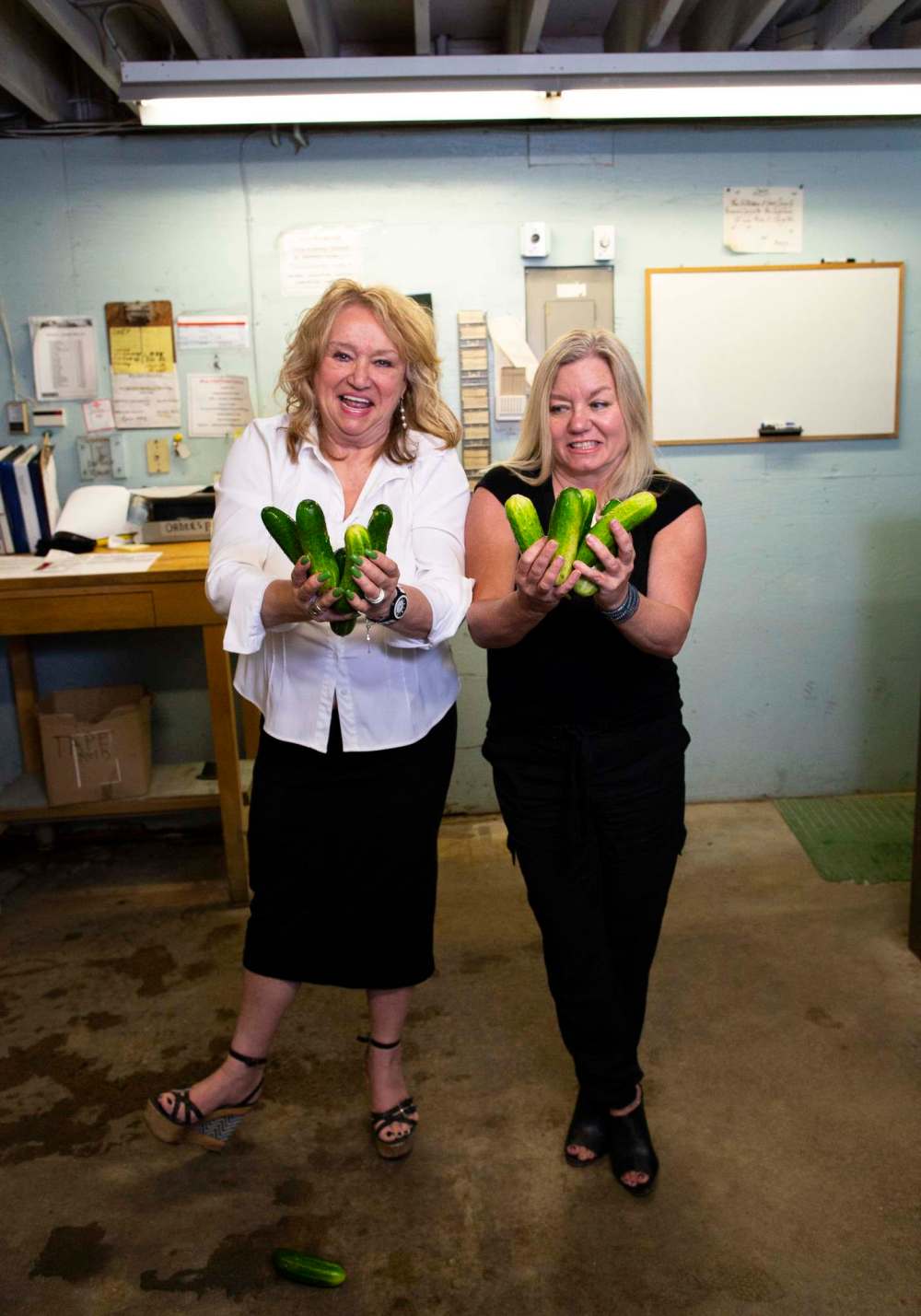
Shortly after she moved to Vancouver five years ago to become the west coast sales manager for Elman’s Kosher Deli Foods, the North End business her late grandfather Samuel Finkleman founded in 1938, Krause got a call from a grocery store manager interested in carrying her family’s line of products, which include sauerkraut, hot mustard, jarred herring and dill pickles. There was one condition: in order to land the contract, she had to pass a blind taste test by correctly identifying which pickle was hers from a selection of 10 different, bite-size segments.
“I was so nervous, thinking how bad it would look if I got it wrong,” says Krause, seated in the Jarvis Avenue office of her mother Millie Krause, who, since the 2004 death of her husband Manny Finkleman, Samuel Finkleman’s son and successor, has served as Elman’s president. “I took my time trying each piece before pointing at the one I was pretty sure was ours. The manager smiled and said I was lucky, but when you’ve been in the pickle business as long as we have there shouldn’t be any luck involved.”
● ● ●
Because Millie didn’t meet Manny until 1971 she’s not completely certain of dates related to the early days of his dad’s company. What she does know is his parents moved from Poland to Canada around 1910, settling in Prince Albert, Sask. The family — Manny was one of seven siblings — eventually relocated to Selkirk where Samuel Finkleman opened a clothing business. They remained in Selkirk until the early 1930s, at which point they moved again, first to College Avenue in the North End, then to Boyd Avenue. It was at the latter abode where Elman’s got its start, Krause understands.
Using family recipes he brought with him from Europe, Samuel — or Happy, as he was commonly known — began making prepared horseradish in the basement of his home. A couple times a month he loaded a wooden wagon with jars of the vinegary condiment. He pulled the wagon from one neighbourhood business to another, asking store owners and hoteliers if they were interested in trying his product. Over time, Elman’s — a play on the last five letters in Finkleman — became a viable enterprise.
In the 1940s, Manny Finkleman, then in his early 20s, had a decision to make: help his father run Elman’s or pursue his dream. At the time Finkleman was an accomplished gymnast and member of the Gay Gauchos, an acrobatic outfit that performed in vaudeville shows across the country. After two other members of the troupe, brothers Russell and Raymond Saunders, moved from Winnipeg to Hollywood to work as stunt doubles in the motion picture industry, Finkleman had the opportunity to do likewise.
“Apparently, Burt Lancaster personally called Manny, telling him to get his butt down there,” Millie says with a chuckle. “Except by that time Manny had a young family with his first wife, plus he owned four cabs, so couldn’t picture himself leaving Winnipeg. Deep down, I think he always regretted it. A few times through the years he remarked, ‘I wonder how life would have turned out if I’d gone to L.A.?’”
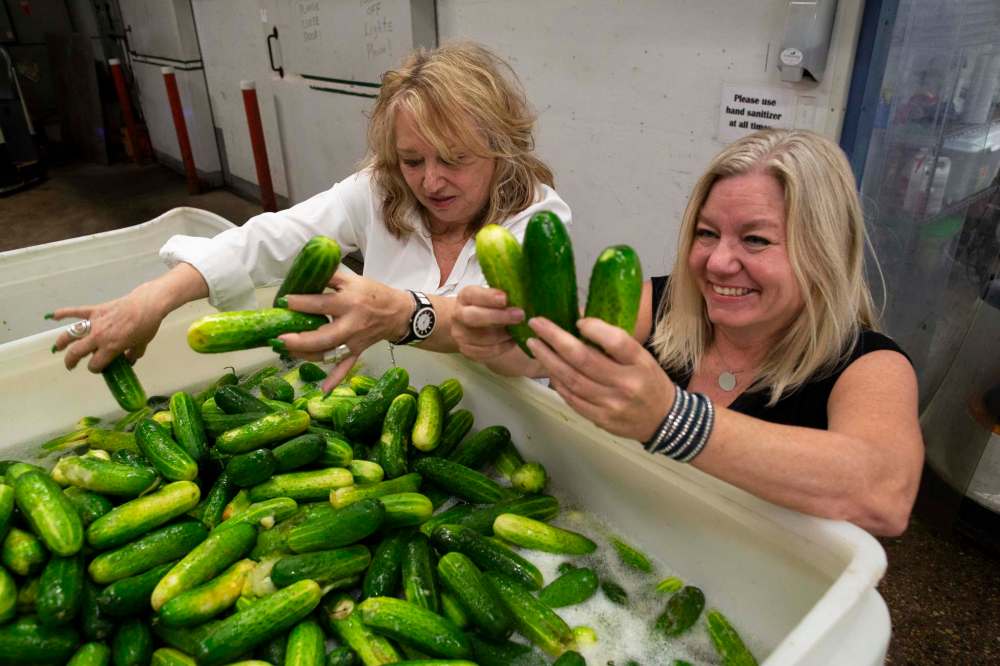
Get this: when Millie started working for Elman’s as a sales rep in 1971, the company, which by then had established a foothold in Dominion and Loblaw stores throughout the province, was still based out of the same Boyd Avenue house Finkleman grew up in.
“There Manny was, going up against Bicks, Claussens and all these other big companies, running a factory out of the back of this old house,” she says, noting Elman’s didn’t move into its present, 8,000-square-foot digs at 647 Jarvis Ave. until 1988. “Manny’s pals used to bug him, saying when a piece of equipment broke down, he’d put it back together with band-aids and rubber bands. Don’t laugh; the labelling machine they had there, we have here and we’re still using it.”
When Finkleman, who was almost single-handedly responsible for growing the Elman’s line (the company now carries close to 40 different products, in various size jars), learned he had terminal cancer, he instructed Krause to run the company for a couple years after he died then sell it and get on with her life. She leans back in her chair and laughs, joking now that she’s “a certain age” herself, she can no longer remember what he told her specifically.
“I’m like, did he say two years or 22?”
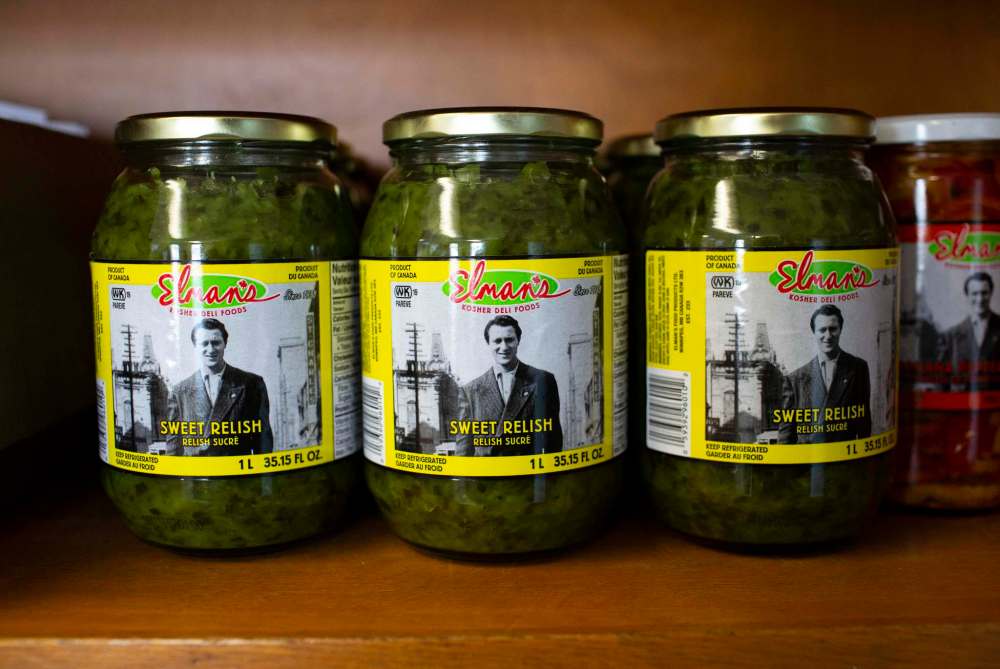
In 2005, Millie honoured Manny’s memory by replacing all the non-descript labels on Elman’s containers, choosing instead a black-and-white photo of “the love of my life,” nattily dressed in a double-breasted pin-stripe suit, superimposed over an image of downtown Winnipeg.
“That picture was actually taken in New York City in the 1940s, but our other daughter Sydney, who lives in Montreal, worked her magic to make it look like he was standing in front of the old St. Charles Hotel,” she says. “Manny was vain, but vain in a good way. I have no doubt if he was here today and saw a picture of himself on a jar of dill pickles he’d go, ‘Wow, what an honour.’”
● ● ●
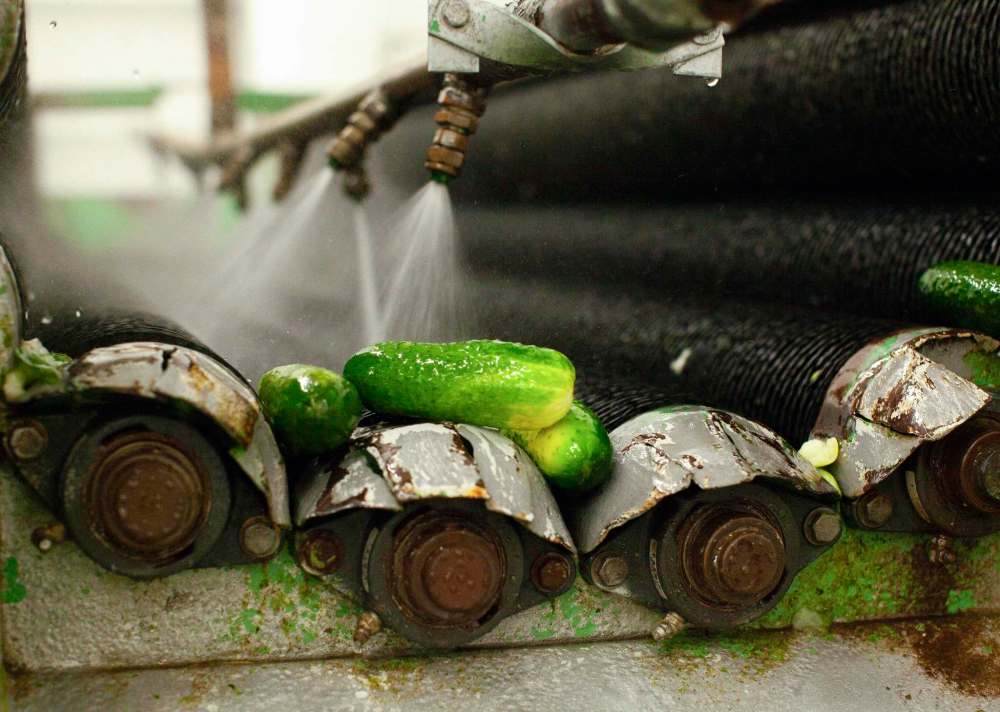
“Here’s where it all happens,” Payton Krause says, offering a reporter a hairnet before escorting him into a neat-as-a-pin production room where workers are busily sorting cucumbers into four-gallon drums another employee is adding freshly-mixed brine to, via an extended hose. “This week we’re in the middle of a pickle run during which we’ll sort and prepare 40,000 pounds of cukes.” (Ha, ha, it sounded like you said 40,000 pounds of cucumbers.)
“That’s right,” Payton says. “We do one big pickle run every three or four weeks, more often during peak periods such as Christmas, Rosh Hashanah and Passover. Any cucumbers that aren’t ‘pretty’ enough to be pickles we use to make relish.”
DILL-ICIOUS IDEA
Some 30 years ago, Manny Finkleman and Millie Krause were out for dinner at a tony steak joint on Pembina Highway. At some point that evening, Finkleman mentioned he was thinking of marketing jars of thinly-sliced pickles consumers could conveniently put on their hamburgers or hotdogs.
“Except here’s where I’m stuck,” he told his better half. “I don’t know what to call ’em.”
Some 30 years ago, Manny Finkleman and Millie Krause were out for dinner at a tony steak joint on Pembina Highway. At some point that evening, Finkleman mentioned he was thinking of marketing jars of thinly-sliced pickles consumers could conveniently put on their hamburgers or hotdogs.
“Except here’s where I’m stuck,” he told his better half. “I don’t know what to call ’em.”
A moment or two later, Krause suggested “bunslappers,” explaining “you have your bun and you slap one on.”
“Oh my god,” Finkleman replied. “What’s the matter with you? We can’t call them that.”
A day or two later, he was in his office, chatting with his general manager. When the topic turned to his sliced pickle notion, he said, “Can you believe it? Millie thought a good name would be bunslappers.”
To which his GM replied, “Bunslappers? That’s brilliant!”
“Suffice to say,” Krause says with a wink, “they’re still called bunslappers to this day.”
Millie Krause says Elman’s products are currently available in retail outlets from Thunder Bay to B.C. (When fashion moguls Chip and Pepper Foster, Manny Finkleman’s twin sons, opened a clothing store in St. Boniface in 2009, customers were able to pick up a jar of pickled beets or sweet onions, along with a pair of designer jeans.)
That said, nary a day goes by when an ex-Winnipegger doesn’t pop by their premises on Jarvis, which has a retail component in the reception area, to pick up a jar of pepper rings, barbecue sauce or pickled eggs.
“They tell us they’re doing the circuit; how they hit (Winnipeg) Old Country (Sausage Ltd.) first, then Gunn’s (Bakery), then City Bread, then us,” Millie says, adding that at the 2014 Golden Globes ceremony, Elman’s products were included in the official swag bags presented to celebs traipsing through the Beverly Hilton Hotel, prior to the official ceremony.
“There are times I feel more like a caretaker of history than a person running a business,” she continues. “I take my title (of president) very lightly because this has nothing to do with me and everything to do with Manny and his dad. As for how long I’m going to stick around, as long as people love the product, I’m happy to keep feeding them.”
david.sanderson@freepress.mb.ca
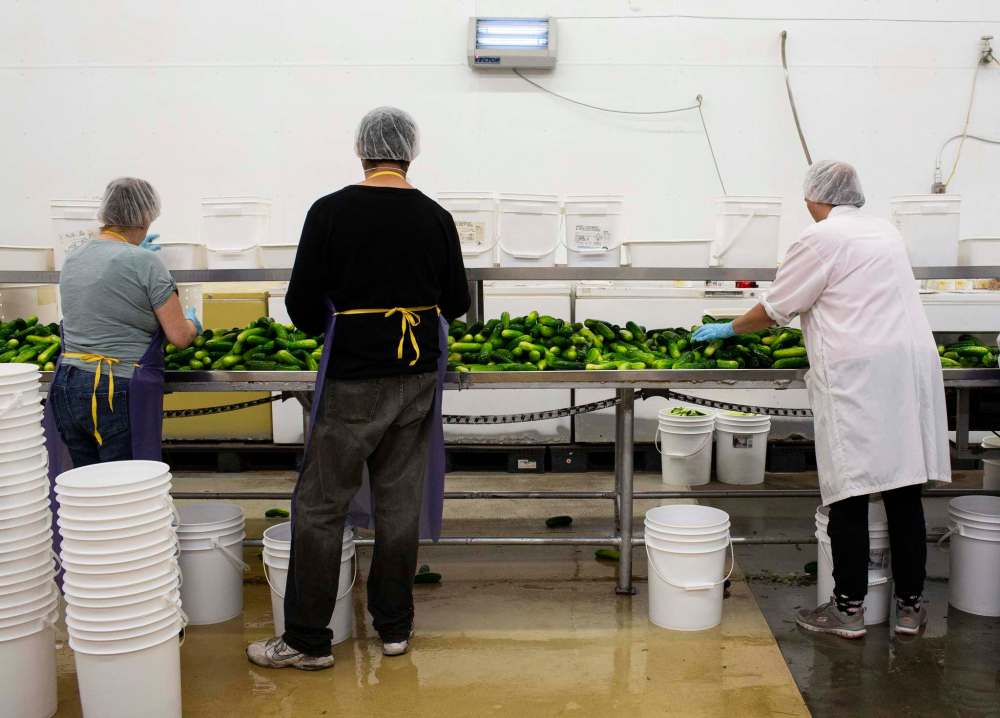
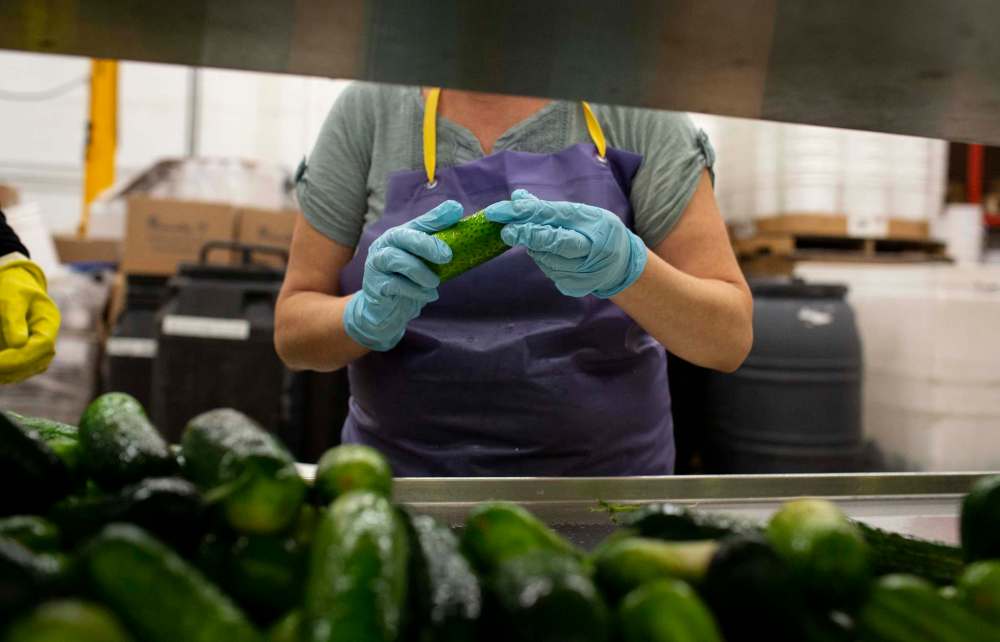
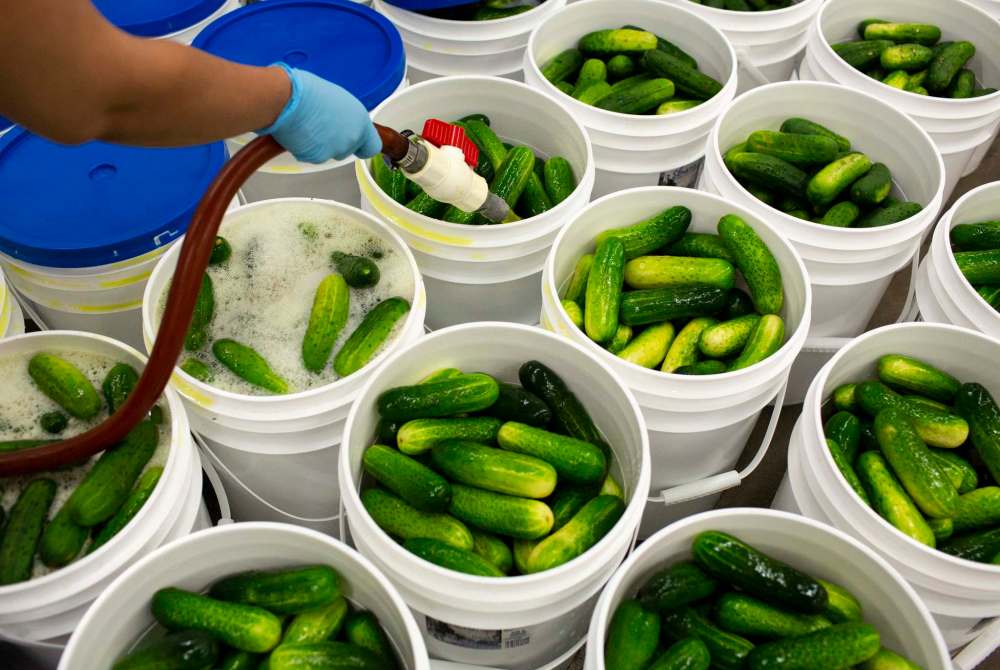
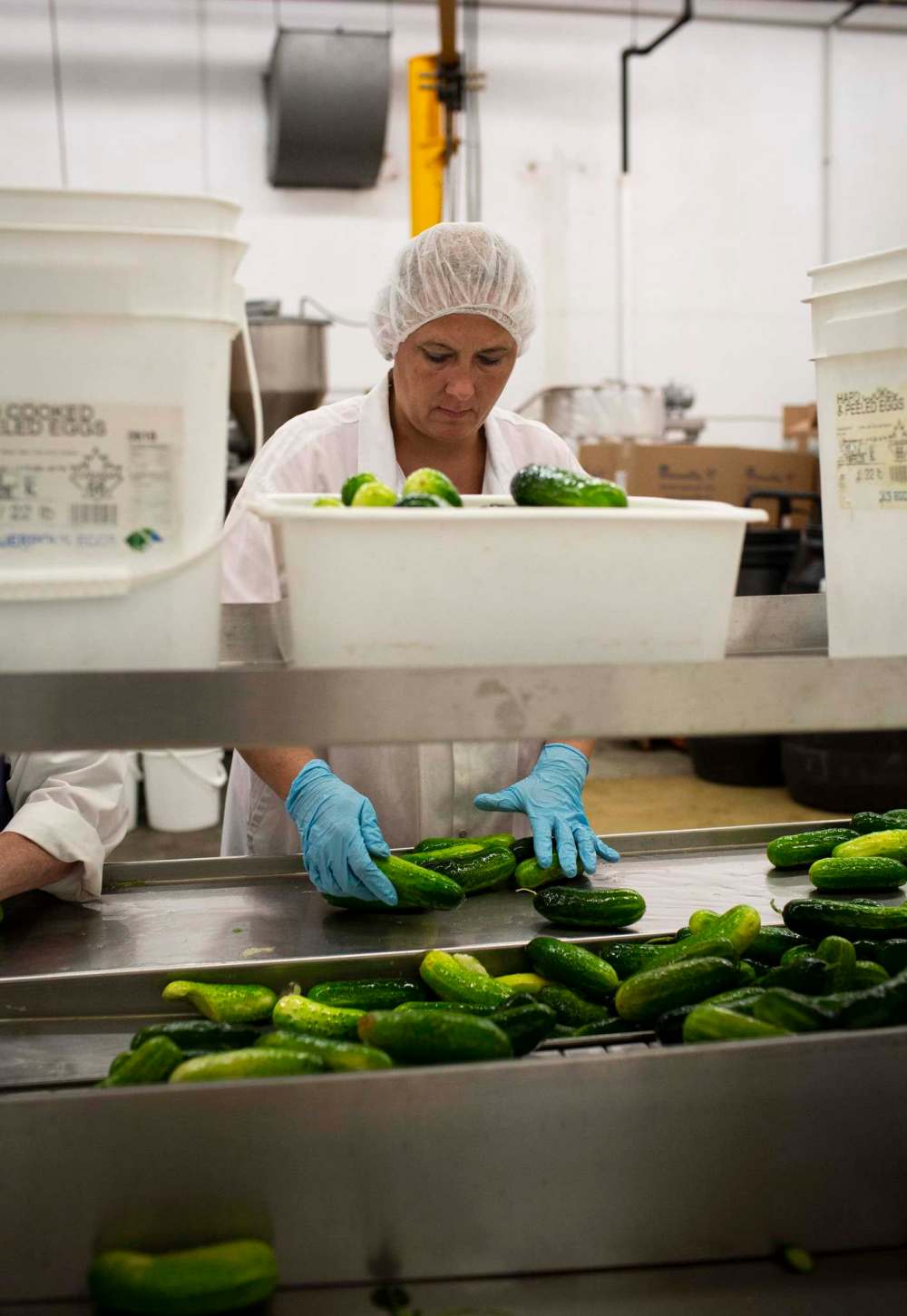
Dave Sanderson was born in Regina but please, don’t hold that against him.
Our newsroom depends on a growing audience of readers to power our journalism. If you are not a paid reader, please consider becoming a subscriber.
Our newsroom depends on its audience of readers to power our journalism. Thank you for your support.

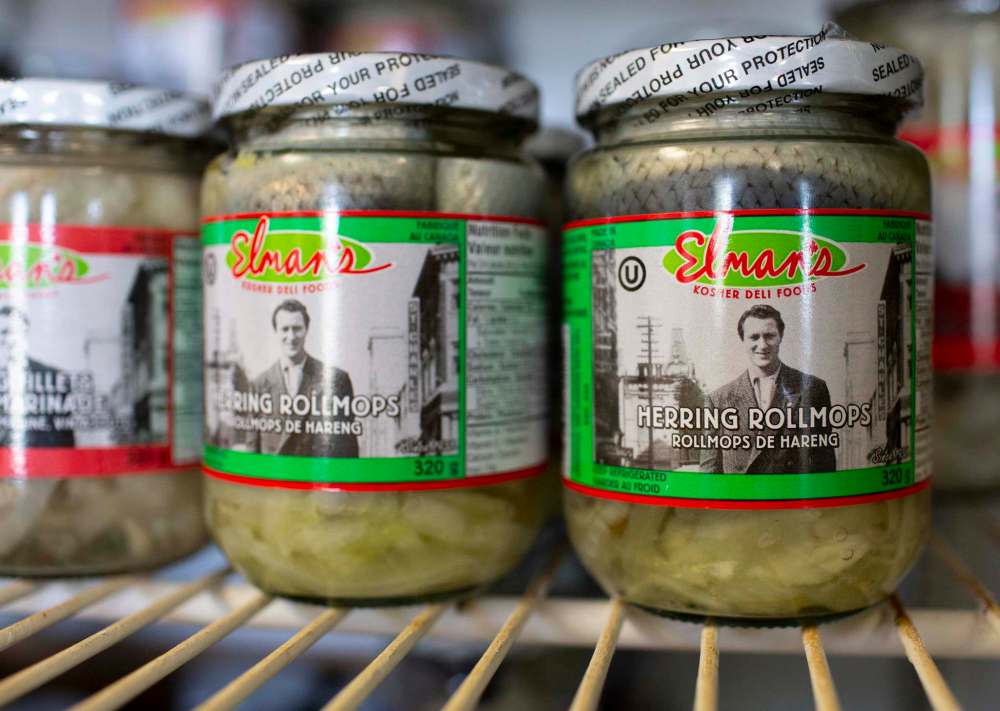

1.jpg?h=215)




